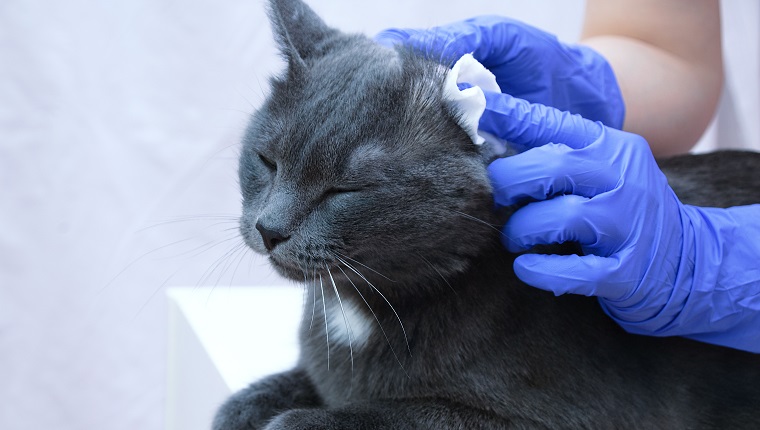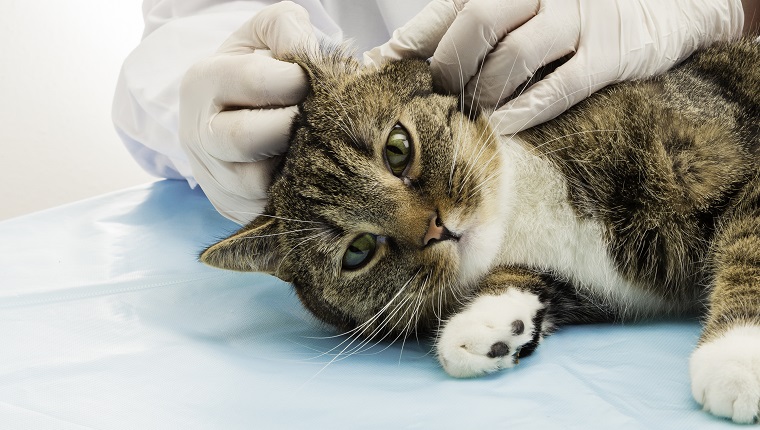Ear mites in cats are super tiny mites called Otodectes cynotis that make their way into the cat’s ear canals and start to eat the wax there.
Infestation is a common condition in cats, and one that’s often prevalent in shelters or other highly-populated living situations.
If you see signs of infestation in your cat, then you must get to a veterinarian for a proper diagnosis and treatment. Here’s what you should know about the symptoms, causes, and treatments for ear mites in cats.
Symptoms Of Ear Mites In Cats
You can usually notice ear mites in cats when felines scratch at their ears both more frequently and more frantically than usual.
Some of the other usual symptoms include:
- Hair loss around the ears
- Shaking their head, trying to shake off the ear mites
- Brown discharge from the ear, often said to resemble coffee grounds
- Redness around the ears
Causes Of Ear Mites In Cats

The cause of ear mites in cats is mostly from one cat passing ear mites on to another cat.
Along with cat-to-cat transmission, mites can be picked up from common bedding. They can live in the environment for a time before jumping onto a cat or other animal. This is one reason why mites are more common in outdoor cats.
Treatments For Ear Mites In Cats
If your cat veterinarian suspects that your cat has ear mites, they’ll examine your cat’s ears and take a swab that can be looked at under a microscope to confirm the presence of mites. Your vet will also ask about your cat’s medical history so that they can rule out other conditions that might affect the ears.
After your vet confirms a diagnosis, they’ll usually prescribe a course of topical treatment. If they also suspect that the ears are infected, they may suggest a course of antibiotics.
As ever, if your vet prescribes a course of antibiotics, it’s imperative to adhere to the correct dosage and complete the full course of the medication, even if your cat appears to have already recovered.
Once you bring your cat home, you might also have to keep up an ear cleaning regimen. Your vet will guide you through the process for this. It’s also important to keep a recovering cat away from any other pets until the mites have been successfully eradicated.
Has your cat ever had a case of ear mites? What steps did your vet take to get rid of them? Let us know in the comments section below.





